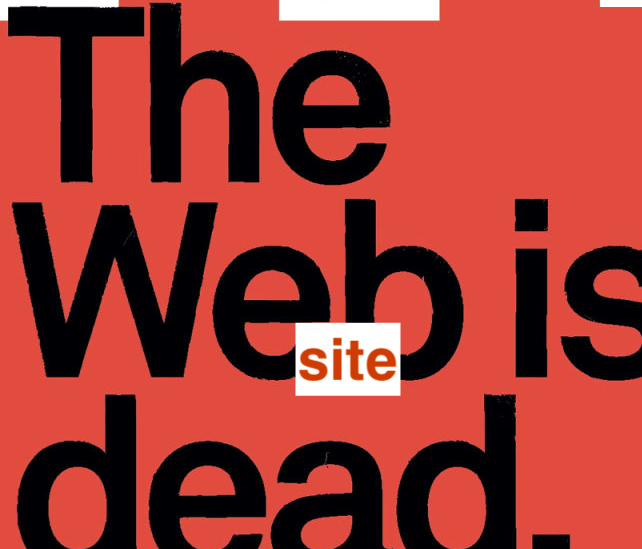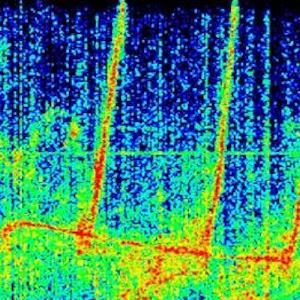Paresh Kamath is a guitarist, singer and composer based in Bombay for almost 30 years. Myriad experiences and with copious manifestations : in music and the 'scenes' behind the sound. The music emitting from the loudest city in India, Mumbai, contains thousands of musicians almost like cogs and wheels inside a massive sound manufacturing machine. Yet few tell the tales and experiences like Paresh Kamath who has traversed hair-metal to prog-rock to jazz-fusion to indie-pop to electronica to tinsel town bolly-pop. Almost a dozen bands, hundreds of tunes, from a tiny home studio to plush tracking suites, many hits and flops later having toured four continents - the person does not adorn an artist moniker nor sound-cloud page. Yet the experience solicits curiosity and titivation. Paresh is a musician who is almost like a map of changes or a chronicle of the various tides of music marking the under-belly of then Bombay, now Mumbai. Paresh reflects with us about the city, the music and his myriad experiences during the last 30 odd years...
You started out in heavy metal bands circa 1991? What was Bombay like then?
'Witch-Hammer' to Bombay Black? That's a big transition...
Well, both bands happened more than 11 years apart. Which is a long time considering we were young and learning as fast as we could. Witch-Hammer released a rap-metal song called 'Riots in Tihar' : about a mutiny by the inmates inside India's biggest jail. Rock Street Journal picked up the tune with 12 other indie bands for the first 'Great Indian Rock Compilation' in 1995. I was part of other bands in between like Krysys, Chakraview, Spice-Tribe and Divya stretching the 90s : with all these bands, some of them short-lived, albeit my music and ability transformed by leaps and bounds. Earlier it was all heavy metal and thrash, long hair, pointy guitars and egos. Shredders, speed, accuracy and all that bullshit. Everything was just competitive... My connection with Suraj Jagan, the singer, tells a story of transformation. I was done with the hiatus of 'white-heavy-metal' worship then existing in Bombay - to me it seemed a hopeless route. Jamming with Suraj over a short period of time resulted in loads of songs on tape. That era, inspired me towards new ideas, riffs and moods. At some point I discovered weed and everything changed! Sounds and music evolved in inexplicable ways. Started listening to mad jazz albums, old funk, R&B and melodic stuff. I remember around 1996-97 Bombay city itself was going through sea-changes as more bands stepped into the scene often breaking norms. Increased number of musicians were more inclined on improvisation, breaking rules, mixing genres and collaborating with musicians of different genres. Late 90s being "loose" had become way more cooler than being all "tight"
Tell us about your stint with Bolly-Pop : the late 90s with Dinshaw Sanjana and the string of pop starlets?
You started out in heavy metal bands circa 1991? What was Bombay like then?
I actually started out in ‘89. With some of my college friends we formed Witch-Hammer. We wanted to participate in competitions. Bombay was the 'bomb' back then! The city had a thriving independent music culture and it was unregulated by all means. Bollywood and indie didn’t mix. Instruments were super expensive to buy and big studios out-of-reach. Indie gigs were packed with various gangs - The jazzers, rockers, metal-heads and the Parsis (they loved all sorts of live music). They all landed up at these gigs and even ridiculed each other's performance openly. You could have good street-meal for less than 20 Rupees! Then some 'saffron' north Indian politicos f**ked it all up in late ‘92 and sadly they are still at it ...
What exactly happened around 92 ?
I'm referring to the communal riots of 1992 and bombings of 93. A lot changed after that in terms of a conservative mindset gradually taking over the city. Bar, venues and clubs came under severe time limits imposed by the state. Many outdoor venues and festivals also collapsed. Take the example of I-Rock and Rang Bhavan, an epic annual rock festival and a legendary venue, after decades of existence both closing down. Bombay's erstwhile diversity and free-range was put to chains. You can see it even today in parts. Political goons raided gift shops on Valentines Day. Politicos, cops and the municipality with an agenda against young people... Many hang-out places, like Carter Road Bandra came under nightly policing and harassment. It changed the city and it's music culture gradually.
'Witch-Hammer' to Bombay Black? That's a big transition...
Well, both bands happened more than 11 years apart. Which is a long time considering we were young and learning as fast as we could. Witch-Hammer released a rap-metal song called 'Riots in Tihar' : about a mutiny by the inmates inside India's biggest jail. Rock Street Journal picked up the tune with 12 other indie bands for the first 'Great Indian Rock Compilation' in 1995. I was part of other bands in between like Krysys, Chakraview, Spice-Tribe and Divya stretching the 90s : with all these bands, some of them short-lived, albeit my music and ability transformed by leaps and bounds. Earlier it was all heavy metal and thrash, long hair, pointy guitars and egos. Shredders, speed, accuracy and all that bullshit. Everything was just competitive... My connection with Suraj Jagan, the singer, tells a story of transformation. I was done with the hiatus of 'white-heavy-metal' worship then existing in Bombay - to me it seemed a hopeless route. Jamming with Suraj over a short period of time resulted in loads of songs on tape. That era, inspired me towards new ideas, riffs and moods. At some point I discovered weed and everything changed! Sounds and music evolved in inexplicable ways. Started listening to mad jazz albums, old funk, R&B and melodic stuff. I remember around 1996-97 Bombay city itself was going through sea-changes as more bands stepped into the scene often breaking norms. Increased number of musicians were more inclined on improvisation, breaking rules, mixing genres and collaborating with musicians of different genres. Late 90s being "loose" had become way more cooler than being all "tight"
Tell us about your stint with Bolly-Pop : the late 90s with Dinshaw Sanjana and the string of pop starlets?
Mid 1995 my band with Suraj, Lindsay and Naresh was often playing at Razzberry Rhinoceros (suburbia's longest running indie nightclub) and Dinshah Sanjana happened to be in the audience one night. Post gig, Vishal Dadlani came up-to us and stated “Hey Dinshah loved you guys and wants to meet you all” Next thing you know, we dived into rehearsals taking on odd-time signatures, complex chords and harmony with Dinshaw as a leader. From long haired rockers to upstart jazz-rats so as to say! Around late 1996 we were slamming jazz and fusion tunes on bigger stages like the Thailand Jazz Fest and Jazz Yatra in Bombay. We were playing to guests like Sonia Gandhi and Daisaku Ikeda as part of Divya (which previously included a stellar line-up of Indian and American jazz musicians). Dinshah and Carl Clemens encouraged and mentored us, almost as a guiding light those years 95 - 98. Local legends like Karl Peters, Deewood, Storms and Amit Heri also inspired us to take the jazz-fusion route. Circa 1996, the scene in Bombay was getting crazy with jazz super-stars like Joe Zawinul, Herbie Hancock and Sadao Watanabe drawing thousands of fans and hundreds of musicians at their concerts. Opportunities gradually surged as the industry was witness to a roll of “Bollypop” artists and labels scrambling to find new talent and new bands. They all wanted to tour and wanted good backing musicians. Lucky Ali’s manager who also worked with Shaan and Sagarika [brother-sister singer duo] offered us gigs and tours. Many bollywood singers also forayed into indie-pop. We started playing sessions for singers and producers in studios. We had cameos in music videos, as MTV and Channel V locked horns in India late 90s. The corporates poured in money as is. All such 'money gigs'! Back then Indie got you the street-credibility and bollywood got you the money. Late 90's the term 'music-industry' was barely in. The Bombay Black was next on the horizon, as the jazz tide started to fade and the indie-pop bubble burst around 1999. The following millennium years changed many things...
What do you make of 'Bombay' now? Compared to the era of Bombay Black...
You see, Bombay is Mumbai now ... and one can see it’s gradual downfall in process year after year. The politicians and builder's nexus is slowly but surely wiping out all the good parts (mangroves, marshes, forests, parks etc) with increased construction sites and the horizon is a concrete jungle. I remember when sparrows and other birds lived in such large numbers around my old place in Irla. That’s over now. It's a crazy place ! Yet in terms of our “scene” the venues transformed into posh clubs and gaudy malls, while earlier it used to be large public spaces like Rang Bhavan, Rang Mandir, Kala Ghoda, Raspberry Rhino, Brabourne and Wankhede Stadium. Places where local and international bands played in the 80s and 90s. Surely there are more bands now, which have definitely gotten better and more professional. I'd day say that most musicians now are way more “educated” and there are increased number of music schools, instrument vendors and practice rooms now. The internet changed so many things as well. The indie music scene in Mumbai is very different from it's earlier spontaneous, brash, unorganized energy. Bombay Black happened because of that very reason...
And Bombay Black?
What do you make of 'Bombay' now? Compared to the era of Bombay Black...
You see, Bombay is Mumbai now ... and one can see it’s gradual downfall in process year after year. The politicians and builder's nexus is slowly but surely wiping out all the good parts (mangroves, marshes, forests, parks etc) with increased construction sites and the horizon is a concrete jungle. I remember when sparrows and other birds lived in such large numbers around my old place in Irla. That’s over now. It's a crazy place ! Yet in terms of our “scene” the venues transformed into posh clubs and gaudy malls, while earlier it used to be large public spaces like Rang Bhavan, Rang Mandir, Kala Ghoda, Raspberry Rhino, Brabourne and Wankhede Stadium. Places where local and international bands played in the 80s and 90s. Surely there are more bands now, which have definitely gotten better and more professional. I'd day say that most musicians now are way more “educated” and there are increased number of music schools, instrument vendors and practice rooms now. The internet changed so many things as well. The indie music scene in Mumbai is very different from it's earlier spontaneous, brash, unorganized energy. Bombay Black happened because of that very reason...
And Bombay Black?
It was mid 1999 and Bombay suburbs was full of musicians and close-friends in the recording industry. Along-with SamratB, Randolf (Pentagram), Lindsay, Abhijeet, Jaideep, Vibhas, Tyrone and my brother Naresh, we were making ad-hoc recordings coming out of jam sessions. Using synthesizers, samplers plus early computer-software with our regular instruments like guitar, drums, bass and percussions. Samrat's residence, a hundred-plus year old villa near my colony, proved a great spot for all us to gather, to jam, smoke-up and record. Emerging electronic music and beats were colliding with our jazz and rock foundations. Some months later, we had assembled all these strange tunes, sounds, beats and riffs. Editing and mixing all the tracks on my Roland 8-track digital at my house was a trip! Stoked with ideas, collaboration, joints and the 'chance'. Bombay Black was born one night at my dad's place with Tyrone, Samrat and me brainstorming : as we hurriedly designed the album cover, scouring over old photos of Bombay. That night, I think we gave the music an identity and an image. What happened after, to look back now, is a bit crazy ... profusely embedded in India's 'indie' legacy. Bombay Black as a collective shattered many existing norms of making music and playing live. Circa 2000, many music lovers in Bombay were not ready for this suburban explosion. The buzz was about "how are these guys doing all this?" ... The term 'Bombay' 'Black' also a slang for locally available variety of hashish [disgusting], was perfect to nail our narrative and vision back then. The fans, critics and public were tossed up! it's hard to believe that Bombay Black would go unto bear such a legacy. We released a new album and videos in 2015 : Fifteen plus years on...
Post Bombay Black, what happened?
Around mid-2003, with Bombay Black mostly drifting out in different directions, Naresh and myself decided to form a new band. We named it Hipnotribe. It was sort of an ensemble with multiple voices, flute, latin-percussions along-with our jazz-rock-rap sensibilities. There was no specific genre that we were devoted to, rather mashing all our inspirations into one hybrid form. Don't call it fusion...We took off in Bombay initially, then getting booked in other Indian cities as well. Naresh and myself got into a bit of jingles, a few background scores and eventually into the 'bangs of bollywood'. Mid 2006 Kailash Kher, Naresh and myself (usually known as KPN) formed the band Kailasa. We got Kurt Peters on drums, Sandeep Naik on percussions and Samir Chipunlkar on synths.
What a contrast if one listens to Kailasa (Paresh, Naresh and Kailash Kher) compared to Witch-Hammer recordings? You being the protagonist in both cases yet almost 18 years apart.
Hahaha ! It's like apples and oranges! No Wait, make that footballs and oranges! Witch-Hammer was about metal, more about chops and machismo. KPN, the music imbibes feminine energies and diversity. For example, Kailash pens most of his tunes in the female narrative. His voice is widely known for emitting positive vibes. The sounds and grooves alter between ethnic to rock to jazz. The music of Kailasa is also driven to connect with the audiences (families, kids and adults) and not indulge in self-heroism on stage. Era Witch-Hammer, we made songs about rebellion, frustration and darkness, while the Kailasa is more about life, diversity and love! Also the transition of lyrics from english to hindi. It's amazing to see local audiences and fans outside India give us so much positive feedback...
Whats the worst thing about the 'bollywood music industry' ? What's the best then ?
Firstly, Bollywood is a great place to sell yourself. The more you open up your 'ass' the bigger 'rewards' you can fit in there! Want a posh car? -open it up wide... want a big apartment? -open up wider... want the stars? -I rather not say .. And those are the best parts .. Imagine a giant machine and it pays when you 'do it' right. It's a very name driven industry (do you know the big-wigs) and on the upside it is changing bit by bit via new directors, subjects, writers musicians and actors. The downside of the industry is at times artists suffer burn-out, which effects their health, mental outlook and capacity to perform. Musicians health you know after all the sex-drugs-rock n roll! It's a tricky balance one has to maintain all the time. Life has gotten hectic as well, because we tour a lot and I am a father and husband now. I have been lucky to be a part of a very caring small community of musicians, like brothers... Amongst us it's not about money nor competition, just as it was twenty years ago.
What's the future like for you?
For me personally, it’s always about becoming a better musician. As a guitar player or a composer or singer, I strive to keep it fresh. I felt that way back when i was made to learn theory and harmony at school in 5th grade. Been at it all this time ... Money, street-credibility, show-business, fame etc are by-products. You hear some 20 year old kid making music and it's mind-blowing! As an individual, as a musician you have to progress regardless of what genre, era or crowd your in...
Follow Paresh on Instagram
Post Bombay Black, what happened?
Around mid-2003, with Bombay Black mostly drifting out in different directions, Naresh and myself decided to form a new band. We named it Hipnotribe. It was sort of an ensemble with multiple voices, flute, latin-percussions along-with our jazz-rock-rap sensibilities. There was no specific genre that we were devoted to, rather mashing all our inspirations into one hybrid form. Don't call it fusion...We took off in Bombay initially, then getting booked in other Indian cities as well. Naresh and myself got into a bit of jingles, a few background scores and eventually into the 'bangs of bollywood'. Mid 2006 Kailash Kher, Naresh and myself (usually known as KPN) formed the band Kailasa. We got Kurt Peters on drums, Sandeep Naik on percussions and Samir Chipunlkar on synths.
Hahaha ! It's like apples and oranges! No Wait, make that footballs and oranges! Witch-Hammer was about metal, more about chops and machismo. KPN, the music imbibes feminine energies and diversity. For example, Kailash pens most of his tunes in the female narrative. His voice is widely known for emitting positive vibes. The sounds and grooves alter between ethnic to rock to jazz. The music of Kailasa is also driven to connect with the audiences (families, kids and adults) and not indulge in self-heroism on stage. Era Witch-Hammer, we made songs about rebellion, frustration and darkness, while the Kailasa is more about life, diversity and love! Also the transition of lyrics from english to hindi. It's amazing to see local audiences and fans outside India give us so much positive feedback...
Whats the worst thing about the 'bollywood music industry' ? What's the best then ?
Firstly, Bollywood is a great place to sell yourself. The more you open up your 'ass' the bigger 'rewards' you can fit in there! Want a posh car? -open it up wide... want a big apartment? -open up wider... want the stars? -I rather not say .. And those are the best parts .. Imagine a giant machine and it pays when you 'do it' right. It's a very name driven industry (do you know the big-wigs) and on the upside it is changing bit by bit via new directors, subjects, writers musicians and actors. The downside of the industry is at times artists suffer burn-out, which effects their health, mental outlook and capacity to perform. Musicians health you know after all the sex-drugs-rock n roll! It's a tricky balance one has to maintain all the time. Life has gotten hectic as well, because we tour a lot and I am a father and husband now. I have been lucky to be a part of a very caring small community of musicians, like brothers... Amongst us it's not about money nor competition, just as it was twenty years ago.
What's the future like for you?
For me personally, it’s always about becoming a better musician. As a guitar player or a composer or singer, I strive to keep it fresh. I felt that way back when i was made to learn theory and harmony at school in 5th grade. Been at it all this time ... Money, street-credibility, show-business, fame etc are by-products. You hear some 20 year old kid making music and it's mind-blowing! As an individual, as a musician you have to progress regardless of what genre, era or crowd your in...
Follow Paresh on Instagram































0 -